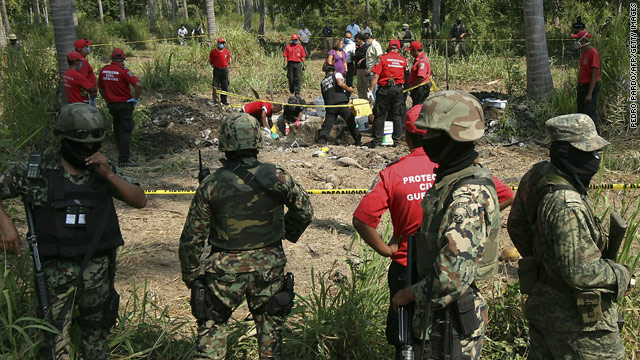By Erica Laster Impunity Watch Reporter, North America
GUATEMALA CITY, Guatemala – “We live in a terrifying anarchy,” says Oscar Quintero, an expert psychologist discussing coping strategies. The International Commission Against Impunity in Guatemala, an organization supported by the United Nations was created in 2007 to eradicate contract killings, dismantle illegal security groups and root out corruption among Guatemala’s business and political elite. The same people who have helped in the campaign are now its quarry with the head of national police and a former presidential candidate now fugitives with arrest warrants issued for their capture.

Despite a homicide rate three times the number as Mexico, the Commission is being met with great resistance from a number of top officials. Former Vice-President Eduardo Stein has accused the commission of “going out of control,” ignoring Guatemalan law and overstepping its mandate. Stein believes the Commission is issuing erroneous criminal charges to the government.
Carlos Casetrana, former leader of the International Commission told the Associated Press that “all the cases we’ve brought to justice have so far ended in prison sentences for the accused.”
Those accused of kidnapping, murder, drug trafficking received the most rapid convictions. 1700 police officers, prosecutors and judges have been purged as a result of Casetrana’s recommendations. The arrest of “hitherto untouchable ex-military leaders,” has been praised by Human Rights First.
One of the Commission’s biggest accomplishments was the purging of Guatemala’s Pavon prison farm. The purpose behind Pavon was a rehabilitation center for inmates where prisoners could tend livestock and grow vegetables. It instead became a feudal state where inmates had access to prostitutes, internet, video games, drugs and fast food. The largest prison in the state, officers swarmed the prison on September 25, 2006, retaking it from inmates running a cocaine lab from its premises.
Today, nearly half the countries territory of 14 million is controlled by drug cartel and other criminals. Civilians face dangers in even the safest of government addresses.
For More Information Please Visit:
The Guardian – Bars, Brothels, And A Regime of Terror – 30 September 2006
Washington Post – U.N. Backed Investigators Shake Up Guatemala – 14 November 2010
CNN – U.N. Names Anti-Impunity Chief For Guatemala – 30 June 2010
Guatemala Times – UN Expert Calls For Drastic Change In Global Drug Control Policy – 25 October 2010


